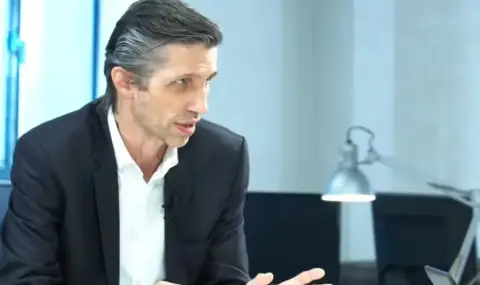"Without touching taxes, there is no way to fill the hole in the budget. There is no way to enter a 3% deficit without imposing unpopular measures".
This was stated to the Bulgarian National Radio by Assoc. Prof. Grigor Sariyski from the Institute for Economic Research at the Bulgarian Academy of Sciences.
"The parties in the coalition will completely cut off all paths for a political future. People have a long memory – everyone will remember if their taxes have been increased or if their salary or pension increase has been delayed... In order to be able to increase the incomes of Bulgarians so that organic growth occurs, you must have organic growth of the economy - more products with high added value, centralization of production. But the increase in budget expenditures occurs inorganically and this is the bill that Finance Minister Temenuzhka Petkova is talking about - citizens must pay the bill for the unreasonable spending three years ago in government".
According to him, it is not realistic for our country to request a convergence report for entering the eurozone as early as February:
"The data of the Ministry of Finance as of the end of November last year show that treasury expenditures are increasing by over 16%, revenues - 8%. You cannot have an anticipatory increase in expenditures and stable finances. One of the criteria for entering the eurozone is fiscal sustainability, which we categorically do not have. We see that interest expenses are increasing by about 1/4, non-tax revenues are decreasing by 1/2. These trends show that the sustainability of finances, to put it mildly, is eroding. To bring such a country into the eurozone means that it will follow the Greek scenario. Nobody wants that".
In the program "Horizon for You" Assoc. Prof. Grigor Sariyski quotes the Governor of the European Central Bank (ECB) Christine Lagarde that Europe is facing an existential crisis:
"Admitting new members to the eurozone will be the last concern. We see a trend of slowing down of the so-called locomotives of the eurozone - Germany has been reporting a decline in GDP for two consecutive years, for example. Plus the increasingly less willingness of the financial markets, which will have difficulty providing loans, and Donald Trump's calls for an increase in military spending to 5% of GDP. This means more burdens on budgets. This means rather cloudy times for the European economy. The forecast is cloudy with prospects of catastrophe".
When asked why prices in our country are higher compared to other European countries, given that we are not yet a eurozone member, Assoc. Prof. Sariyski replied:
"There are several reasons. There is a conjuncture for the growth of raw material prices. When there is an increase in raw material prices, then it is transferred one to one to the final product. But when there is the opposite trend, because the markets always move with a correction, traders "forget" to make a correction to the price of the final product. Secondly, we have a very large share of labor-intensive production. The cost of labor has increased intensively in recent years. With this intensive growth in nominal wages, there is no way this will not be transferred to finished products. Thirdly, an increase in wages means that people are able to buy at increasingly higher prices, respectively, traders are catching up very quickly. Traders are catching up very quickly with trends in consumer incomes".
